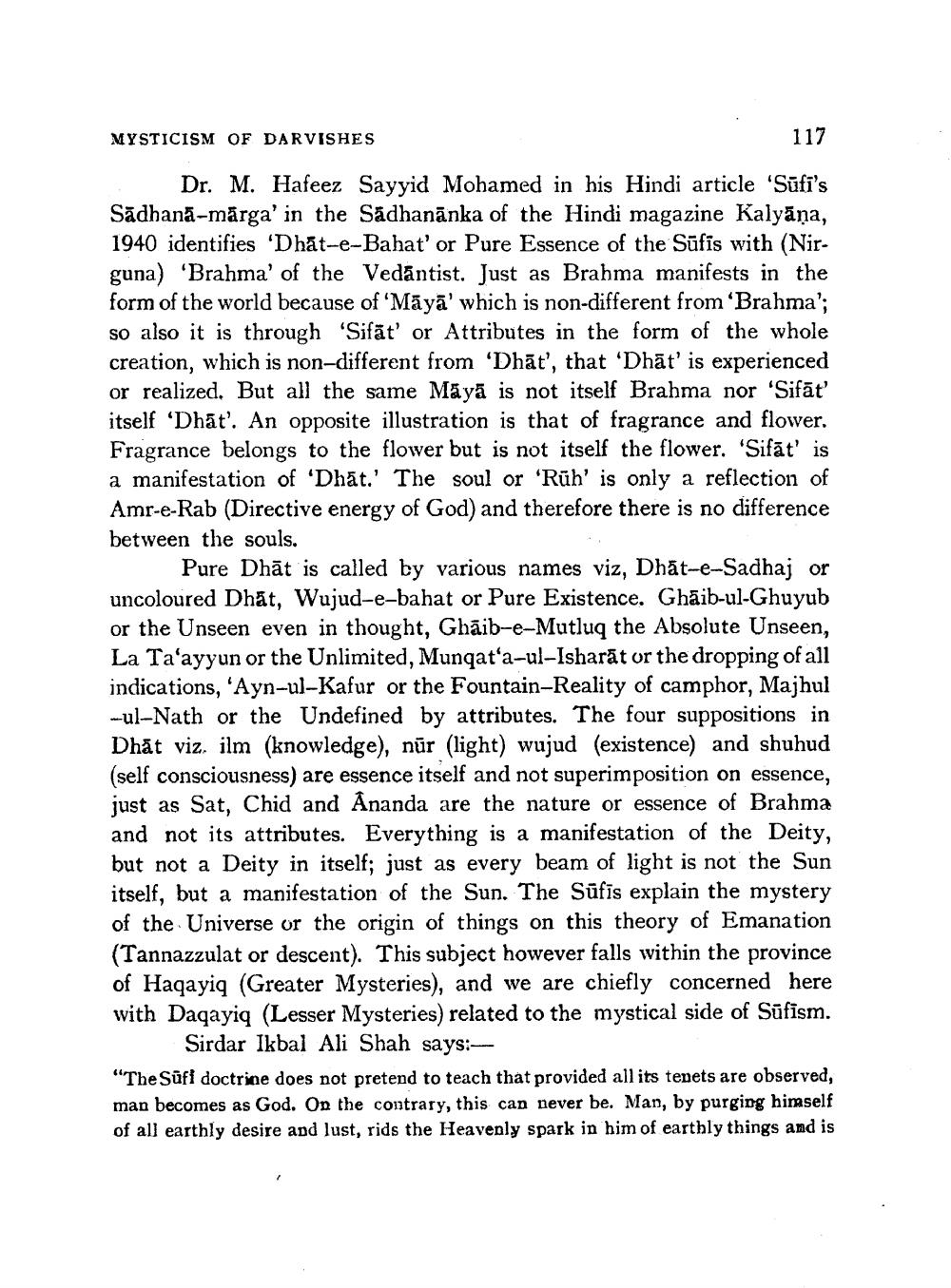________________
MYSTICISM OF DARVISHES
117
Dr. M. Hafeez Sayyid Mohamed in his Hindi article 'Sufi's Sādhanā-märga' in the Sadhanānka of the Hindi magazine Kalyāņa, 1940 identifies 'Dhāt-e-Bahat' or Pure Essence of the Sūfis with (Nirguna) 'Brahma' of the Vedantist. Just as Brahma manifests in the form of the world because of 'Māyā' which is non-different from ‘Brahma'; so also it is through 'Sisāt' or Attributes in the form of the whole creation, which is non-different from 'Dhāt', that 'Dhāt' is experienced or realized. But all the same Māyā is not itself Brahma nor 'Sifāt itself 'Dhāt'. An opposite illustration is that of fragrance and flower. Fragrance belongs to the flower but is not itself the flower. 'Sifāt' is a manifestation of 'Dhāt.' The soul or 'Rūh' is only a reflection of Amr-e-Rab (Directive energy of God) and therefore there is no difference between the souls.
Pure Dhāt is called by various names viz, Dhāt-e-Sadhaj or uncoloured Dhát, Wujud-e-bahat or Pure Existence. Ghāib-ul-Ghuyub or the Unseen even in thought, Ghāib-e-Mutluq the Absolute Unseen, La Ta'ayyun or the Unlimited, Munqat'a-ul-Isharāt or the dropping of all indications, 'Ayn-ul-Kafur or the Fountain-Reality of camphor, Majhul -ul-Nath or the Undefined by attributes. The four suppositions in Dhāt viz. ilm (knowledge), nūr (light) wujud (existence) and shuhud (self consciousness) are essence itself and not superimposition on essence, just as Sat, Chid and Ananda are the nature or essence of Brahma and not its attributes. Everything is a manifestation of the Deity, but not a Deity in itself; just as every beam of light is not the Sun itself, but a manifestation of the Sun. The Sūfīs explain the mystery of the Universe or the origin of things on this theory of Emanation (Tannazzulat or descent). This subject however falls within the province of Haqayiq (Greater Mysteries), and we are chiefly concerned here with Daqayiq (Lesser Mysteries) related to the mystical side of Sūfism.
Sirdar Ikbal Ali Shah says:"The Süfi doctrine does not pretend to teach that provided all its tenets are observed, man becomes as God. On the contrary, this can never be. Man, by purging hinaself of all earthly desire and lust, rids the Heavenly spark in him of earthly things and is




